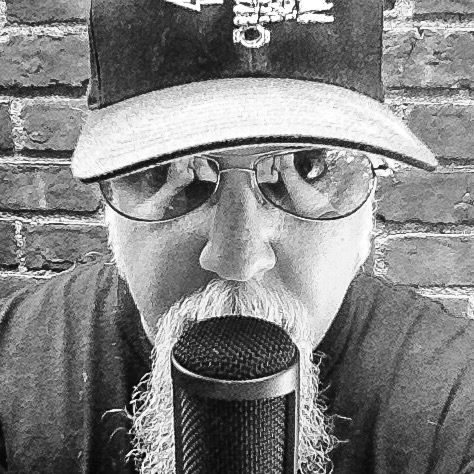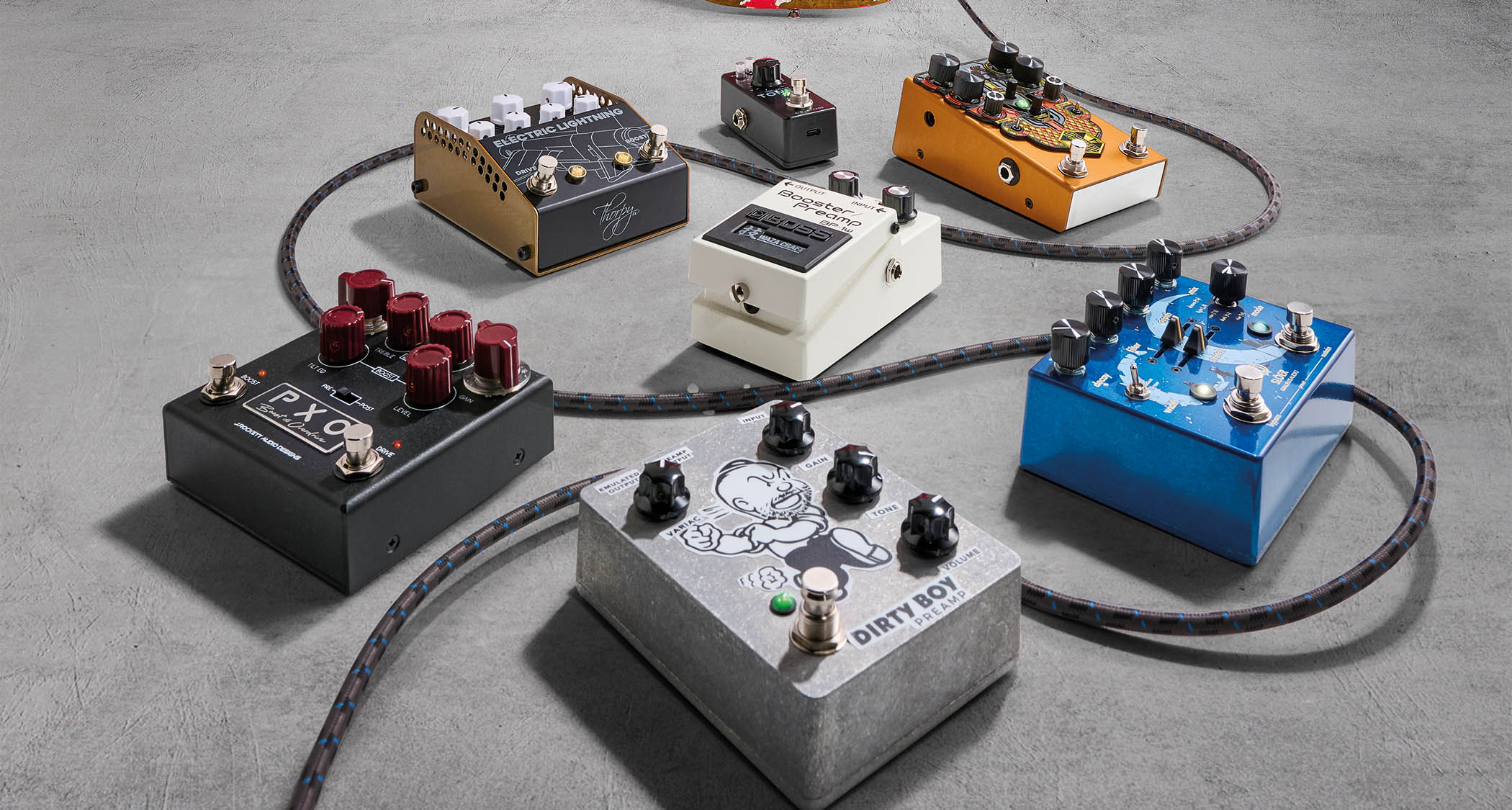“This guy kept calling saying, ‘I’ve never been in a band before, but I’m the best guitarist ever.’ When I heard him play it was like a fire from heaven”: The life and times of Killing Joke visionary Geordie Walker – the guitar hero’s guitar hero
He influenced Kurt Cobain, Metallica, Tool, Nine Inch Nails and counted Jimmy Page as a fan. We pay tribute to a true guitar original

Geordie Walker, known for his steadfast role as the guitarist for Killing Joke throughout the band’s entire existence from 1979 until his death in 2023, was far from a household name in the shallow, fickle world of pop music and rock ’n’ roll fandom. Hell, his name barely seems to register within the greater guitar player community except among a discerning and knowing few.
However, his impact, influence and respect is much more far-reaching than most guitarists realize, spanning several generations of players. Jeff Beck, Metallica, Foo Fighters, Helmet, Fear Factory and Prong recorded covers of Killing Joke songs. Jimmy Page was a huge fan.
Tool, Soundgarden, industrial titans Trent Reznor and Al Jourgensen, neo-psychedelic icons guitarist Kevin Shields (My Bloody Valentine) and singer Tim Burgess (Charlatans) and numerous others all sang his praises and acknowledged the impact that Geordie’s massive sound had on their own music. Kurt Cobain borrowed heavily from him (and admitted it).
During his life, Geordie recorded 15 studio albums with Killing Joke and one album each with the side projects Murder Inc. and the Damage Manual. Beyond a few non-album tracks recorded for EPs and singles and a multitude of official and non-official live albums, that was pretty much it for his recorded output.
But every single one of them is completely worth a listen. The closest Killing Joke ever got to mainstream acceptance was their 1985 album Night Time, which was certified Gold in the U.K., where singles from that album also enjoyed some success on the charts.
But like Brian Eno’s alleged quote that “the first Velvet Underground album only sold 10,000 copies, but everyone who bought it formed a band” or the Sex Pistols’ fabled 1976 Manchester gig attended by only about 30 people, but most of those people later formed the Buzzcocks, the Fall, Joy Division, Simply Red and the Smiths and started Factory Records, Killing Joke had a much more far-reaching creative impact on musicians who heard the band, loved it and were motivated to make their own music.
Killing Joke, and especially Geordie’s powerful riffs and symphonic rhythm textures, greatly inspired the sounds of dozens, if not hundreds, of industrial, goth, tribal, post-punk, alternative metal, grunge and numerous other bands of genres that defy the status quo.
Get The Pick Newsletter
All the latest guitar news, interviews, lessons, reviews, deals and more, direct to your inbox!
Geordie’s name rarely, if ever, appeared on guitar or music magazines’ “best guitarists” lists, but that doesn’t mean he wasn’t highly influential or important. He rarely played guitar solos, and the ones that he did were mostly rhythmic and melodic. He wasn’t a technical virtuoso in the traditional sense. He wasn’t a shredder.
However, Geordie possessed something much more uncommon – a sound, style and imagination that were truly inimitable. From his uncommon rig that paired a vintage hollowbody with rare amps and obscure studio processors to the way he summoned dense, lush soundscapes and washes of dissonance from that gear, Geordie was truly one of a kind.
Many players tried in vain to copy him, and at best the most persistent only managed to stumble across their own distinctive sounds in the process. But isn’t that the way it should always be?
The following is Guitar World’s belated and long-overdue tribute to the iconic (in the true definition of the word, not the watered-down current social media usage) guitarist Geordie Walker.
Honestly, the words here can’t do him full justice. You’ll need to listen to a good solid chunk of his work to fully grasp that, and we hope that this article inspires you to do so. And if you do, turn it up loud.
A new day
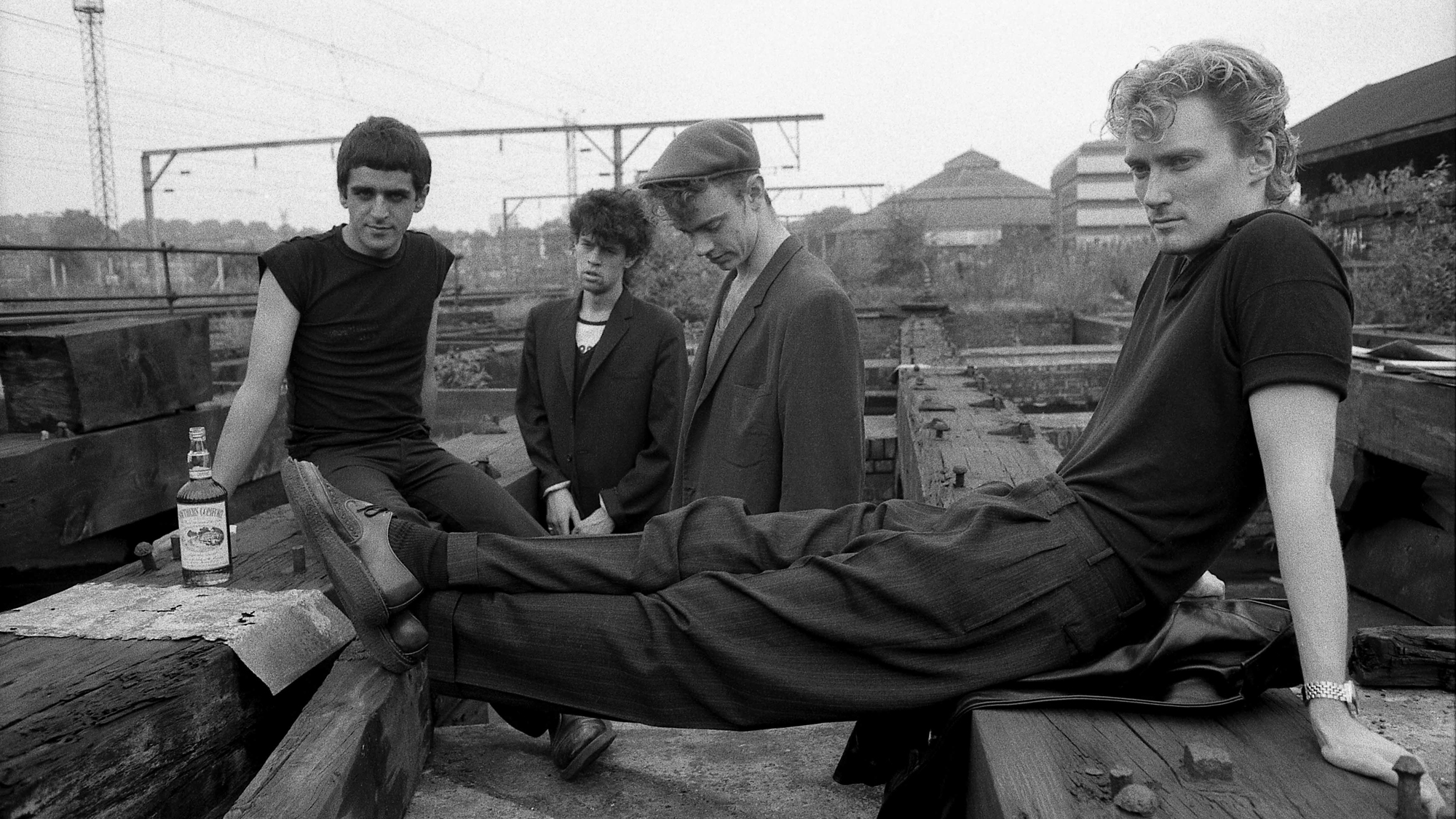
Kevin Walker was born December 18, 1958, in Chester-le-Street, County Durham, a small market town in northeastern England about 10 miles south of Newcastle upon Tyne. His father, Ronald, was a woodworker, and his mother, Mary, was a bookkeeper. He was the couple’s only child.
A few years later his family moved about 200 miles south to Bletchley, only a short distance from the Marshall amplifier factory in Milton Keynes.
While attending Sir Herbert Leon Academy, his classmates nicknamed him “Geordie” – a common nickname for people from the Newcastle area – thanks to his thick Northeastern English accent and dialect that he had throughout his life.
Geordie told Brad Angle that he came from “a music-lover family” in a 2016 Guitar World article. “My maternal grandmother was apparently really good on the piano and learned it all by ear. The radio was always on in the house as I was growing up. The first song that I heard that really got me into the guitar was a band called Love Sculpture.
“The guitarist was Dave Edmunds and the song was Sabre Dance [a cover of a piece by Russian classical composer Aram Khachaturian that became a hit in 1968]. Every time it came on the radio I would dive across the room and turn it up full.”
Geordie further caught the musical bug in the late ’60s when his mother took him to a concert where he saw Desmond Dekker and the Aces perform.
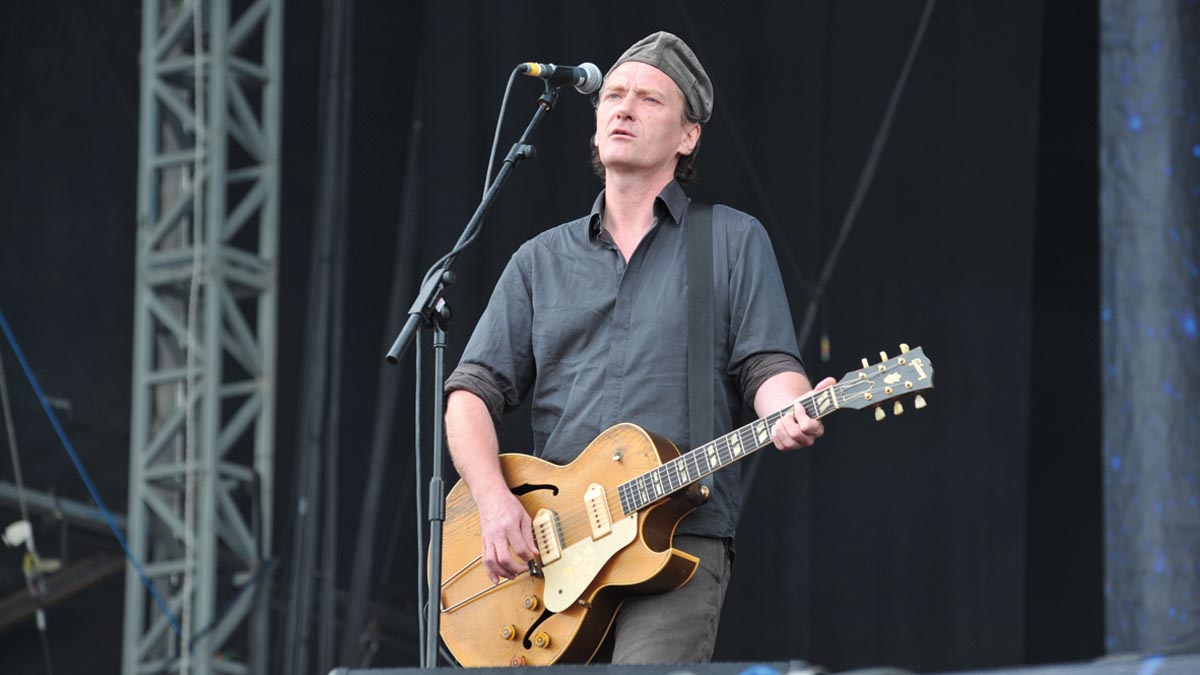
At first he started playing keyboards but soon switched to guitar. “When I was 15, my mum bought me a Les Paul, a real one,” he told me in June 1994. “It was an early ’70s Deluxe, with a Cherry Sunburst finish and mini humbuckers. I replaced those with P-90s the first chance I got. Later after I got a couple of real jobs, I saved my money and also bought an SG Junior.”
After graduating from secondary school in 1977, Geordie moved further south to London to pursue a degree in architecture at a university. Here, he became swept up in the punk scene at its early peak and attended numerous shows. He was particularly inspired by the playing of Siouxsie and the Banshees guitarist John McKay, and he became determined to join or form his first band.
Tomorrow's world
In late 1978, Geordie saw an ad in the music publication Melody Maker that read, “Bass, lead, to tell the killing joke, we mean it man! Total exploitation, no information, anonymity.”
“It looked rather serious, fanatical,” he told Max Kay in a 1984 interview with Music UK. “I liked the sound of it. I don’t know what it was but it clicked with me. I went down to see this guy [Killing Joke founder/singer Jaz Coleman] and immediately started arguing with him about his taste in music. I kept hassling them [Jaz and drummer Paul Ferguson] for some reason.”
“This guy kept calling saying, ‘I’ve never been in a band before, but I’m the best guitarist ever,’” Coleman told James Gill in a 2013 Metal Hammer interview. “I couldn’t get rid of him, so at last I said, ‘Alright, come ’round.’ Geordie moved in three weeks before I actually heard him play. When he did it was like a fire from heaven.”
Geordie, Coleman, Ferguson and bassist Youth [Martin Glover] formed Killing Joke in June 1979 and played their first show and recorded their first EP, Turn to Red, in August, which they released in October on their own Malicious Damage record label. The songs they recorded combined distinctive dub-inspired soundscapes and driving post-punk rhythms.
About a full year later in 1980, the band released its self-titled debut album, Killing Joke. The evolution of the band within a year’s time was astonishing. The music was frantic, gripping and completely unlike anything else on the scene at the time.
The first song on the album, Requiem, was a bold statement of intent that built the foundation for the band’s entire career in a taut three minutes and 45 seconds. It remained a consistent fixture of Killing Joke’s live shows.
Wardance and The Wait – the latter covered by Metallica on their 1987 Garage Days Re-Revisited EP – were also standout tracks, but truthfully the entire album is killer. In one fell swoop, it became an instant blueprint for metal-inspired industrial and progressive thrash styles that followed.
Geordie’s guitar tones on the album were abrasive and metallic, and when his riffs locked with Youth’s deep dub bass they sounded gigantic.
Killing Joke’s follow-up 1981 album, What’s THIS For. . . !, expanded the band’s sound with its tribal-meets-death-disco rhythms and Geordie’s increasingly dissonant textures.
Follow the Leaders was a minor breakthrough success in the United States, receiving generous airplay on alternative/modern rock radio stations and reaching Number 25 on the Billboard Hot Dance Club Songs chart. To this day, it remains a surefire way to get sullen goths up off the floor and shaking their black linen-clad booty.
Geordie further refined and expanded his heavily modulated, textural guitar tones on 1982’s Revelations. His guitar filled a wider soundscape and sounded utterly symphonic on large stretches of the album, but that would ultimately lead him to replace the Les Paul Deluxe that was his main instrument during this era.
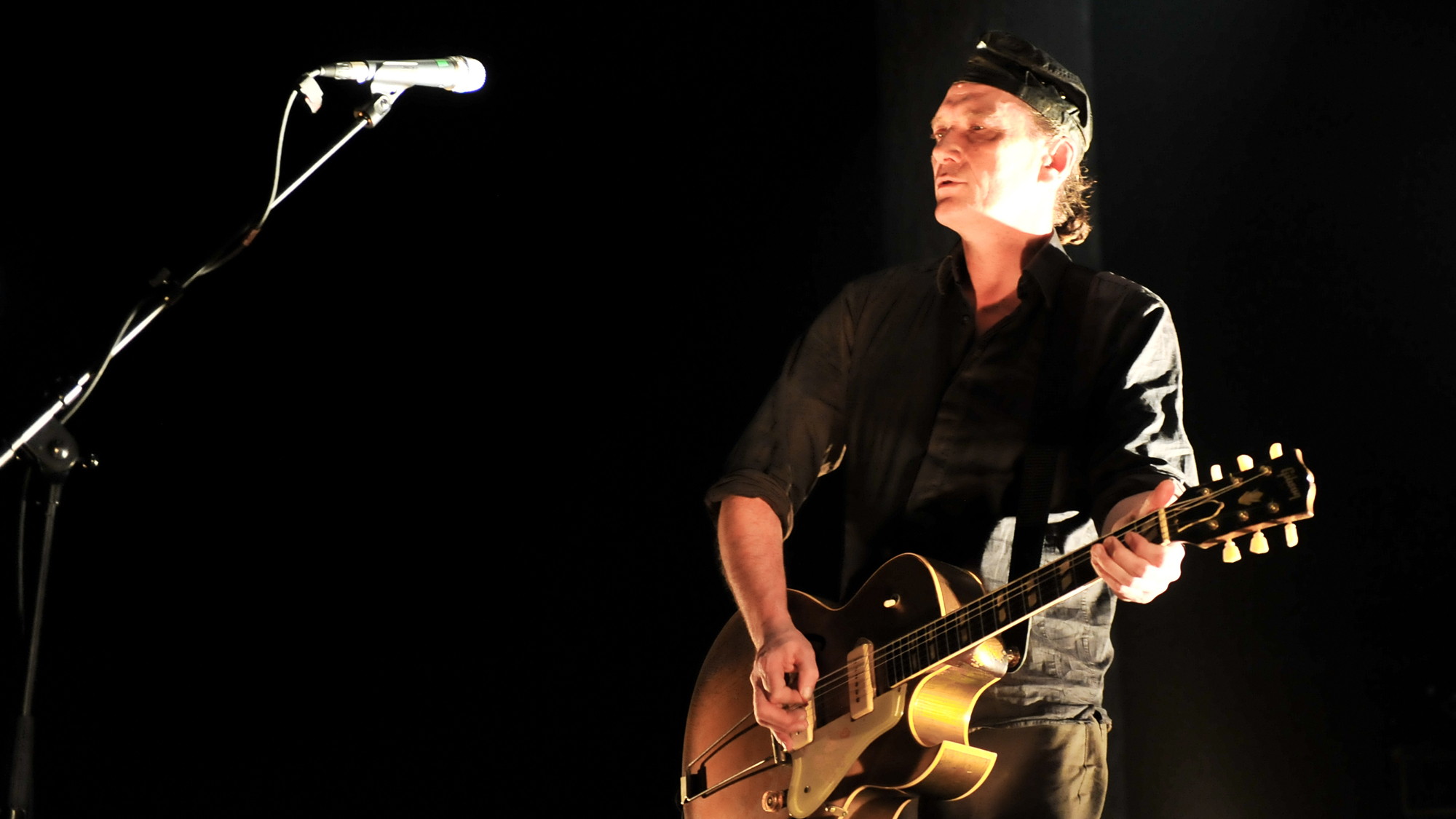
The Les Paul Deluxe was Geordie’s main guitar on Killing Joke’s first three albums, but as his sound became more textured and varied, he became increasingly frustrated with it.
“I wanted a distorted sound while still being able to hear the notes if I played a complex chord,” he told Guitar World in 2016.
“So the idea was that I should get a semi-acoustic distorted sound, put a contact mic in it and blend the two sounds. But then I found that [Gibson ES-295 goldtop hollowbody] in a little store in West London for £640, which at the time was like $1,000. As soon as I plugged it in, there was the sound!”
Plugged into a pair of Burman Pro 2000 heads (an obscure amp manufactured in Newcastle during the late ’70s through the early ’80s) each driving custom-made Burman 8x10 speaker cabinets, an Electro-Harmonix Deluxe Memory Man delay and a pair of PA:CE/Bell Electrolabs ADT units, the ES-295, strung with heavy-gauge strings and tuned down a full step or more, took Geordie’s wall of sound to a new level of unique character.
The vintage 1952 goldtop hollowbody remained his main guitar from that point onwards.
Eighties
Fire Dances was the first Killing Joke album to feature Geordie’s newly expanded and highly characteristic resonant, reverberant sound, and it was also the first to feature the growling, gritty bass lines of Paul Raven, who had replaced Youth.
E.G. Records had also signed the band, expanding Killing Joke’s distribution and marketing/promotional efforts. Fire Dances was generally well received by fans and critics alike, but it was primarily an appetizer for the dazzling main course that followed, the 1985 album Night Time.
This was the album that should have pushed Killing Joke into mainstream success, but underneath the elegant melodies, cinematic guitar soundscapes and pounding rhythms was a subversive edge that made neon polyester-clad Reagan youth and John Hughes wannabe-movie extras’ skin crawl.
The hauntingly beautiful Love Like Blood was Killing Joke’s biggest hit and deservedly so, thanks to Jaz’s brilliant melody and Geordie’s chilling, endlessly chiming arpeggios.
Kings and Queens with its dramatic, building riff was as elegantly powerful, and the violent, pile-driving Eighties became the unofficial anthem of pissed-off disaffected youth during the “just say no” era. The latter was an even bigger hit than “Follow the Leaders” ever was with modern rock radio.
Unfortunately, Killing Joke lost much of the bitterness and bite on their next two albums, Brighter Than a Thousand Suns (1986) and Outside the Gate (1988). Both albums seemed to be bids by the band to chase pop stardom as they softened their sound. Geordie’s guitar was pulled back in the mix, and keyboard parts became more dominant.
But while these efforts are disappointing when compared to Killing Joke’s earlier work, they still were miles better than much of the slickly over-produced synth-pop and brain-dead glam metal that was prevalent at the time.
Killing Joke’s comeback in 1990 with their Extremities, Dirt and Various Repressed Emotions was vicious, brutal and brilliant. The band was pissed off at the music industry (E.G. had dropped them, so they signed with a German independent label) and the sorry state of the world.
When Killing Joke entered the studio in August 1990, the Gulf War had just broken out, which inspired the dark and violent apocalyptic overtones.
Drummer Martin Atkins (Public Image Limited, Pigface) had recently joined the band, giving Killing Joke added punch and precision in the rhythm department. Geordie’s tones were gargantuan, washed in thick reverb, but the notes were astonishingly clear and deliberate.
The guitarist said that Revelations producer Connie Plank compared his guitar sound to hearing music on the radio during World War II. “When they played classical music on the radio,” he told Uncut’s Peter Watts, “if you turned it up full, that was the sound I made, that dissonance. It was the best compliment I’ve ever had.”
That description is a perfect fit for the orchestral magnificence of Geordie’s playing on Extremities, Killing Joke’s most overlooked and underrated effort. Journalists often described his sound as “multi-layered,” but in truth his parts were usually single tracks with relatively few overdubs, if any. His guitar tone was simply that big.
Millennium
What should have been a triumphant return to form unfortunately turned into an abrupt ending, albeit a temporary one. Coleman moved to New Zealand and started composing classical music.
Geordie wandered into various projects, recording an album with Faith No More that ended with him erasing his parts and departing with a sizable paycheck and forming the side project Murder Inc. with both Atkins and Ferguson on drums, Raven on bass, vocalist/guitarist Chris Connelly and keyboardist/sample jockey John Bechdel. Geordie had also gotten married to Ginny Kiraly, and after their son Atticus was born in 1992 they settled in the suburbs of Detroit.
“The wife wanted to be back with family and friends,” he told me in 1994. “We had lived in Italy and England, but after she carried our son for nine months I thought, ‘Well, it’s your agenda, dear. Whatever you’d like.’
“It’s cool to raise a family, but not in Detroit, sir. No-one lives in Detroit. It’s the only city where you fly in at night and it gets dark as you fly over the center of town. It’s grim. It’s dangerous, but that’s how I like it.”
After a four-year hiatus, Killing Joke reunited with the original lineup featuring Youth and Ferguson, while Raven joined Prong. This resulted in the recording of the 1994 Pandemonium album, overwhelmingly hailed as yet another return to form.
Kurt Cobain is a bloody good songwriter but he is a complete plagiarist
Geordie Walker
Coleman had become increasingly inspired by Middle Eastern music, and the album delivers a compelling blend of ethnic, electronic, metal and industrial styles – some vocal and string tracks were even recorded in the King’s Chamber of the Great Pyramid of Giza in Egypt.
Geordie’s guitar sound went through a radical shift as he adopted the tight, precise high-gain distortion tones of thrash metal in tight lockstep with Youth’s basslines while dialing back the chiming, chorus-like textures that had become his signature sound.
“I plugged my 295 into a noise gate and cranked it right up,” he said. “The sound was fucking solid. Youth told me to get out my Les Paul again, so I used that on the album too. It’s on Pandemonium and Millennium, which sounds extra tight and tough because we had two Swedish guys sampling my riff, tightening it up. It’s still my riff though, innit?”
While Killing Joke were making Pandemonium, they became involved in a bit of controversy when someone pointed out to them that the main riff in Nirvana’s Come As You Are more than slightly resembled Geordie’s riff on Eighties.
“Kurt Cobain is a bloody good songwriter,” Geordie told Guitarist magazine at the time, “but he is a complete plagiarist.”
Cobain initially denied the incident, saying that he had never even heard of Killing Joke. However, when Geordie mentioned that the band had received a Christmas card signed by all of the members of Nirvana, Cobain admitted the inspiration. [Many have noted both songs’ resemblance to Life Goes On by the Damned, released in 1982, but that’s a matter for another day.]
Killing Joke never actually formally complained about the plagiarism, and it became a moot point when Cobain committed suicide in 1994.
![Killing Joke perform at 2009's Sonisphere at Knebworth, England. Geordie Walker [right] wears his trademark hat and plays his ES-295. Jaz Coleman wears all black and sings into the mic.](https://cdn.mos.cms.futurecdn.net/9C6B2c46cgxLDjDeE9SseC.jpg)
It became even more of a moot point when ex-Nirvana drummer Dave Grohl offered to play drums on the entirety of Killing Joke’s 2003 self-titled follow-up to 1996’s Democracy.
Produced by Gang of Four guitarist Andy Gill, the 2003 album was redundantly hailed as yet another comeback for the band – even though they never truly went away. If anything, the 2003 album was a continuation of the Pandemonium album, with a new version of Seeing Red also bringing things back full circle to the band’s first EP release.
Killing Joke really impressed me because Geordie’s guitar sound was just really, really strong
Jimmy Page
From there on out, Killing Joke went from strength to strength, releasing the albums Hosannas from the Basements of Hell (2006, an ideal bookend to Extremities sharing a similarly dark dense sound and apocalyptic outlook), Absolute Dissent (2010), MMXII (2012) and their final studio full-length effort, Pylon (2015).
Geordie’s sound seemed to grow even more violent and powerful over time as he continued to refine and expand his vision.
His rig remained pretty consistent throughout, although Marshall and Framus heads and THD amps periodically appeared on stage when it became too risky to take his Burmans on the road, and random Framus hollowbodies occasionally appeared as well. Geordie’s final recorded performance is heard on the Lord of Chaos EP released in 2022.
Geordie Walker died of a stroke in Prague on November 26, 2023, at the age of 64. He had moved to the Czech Republic in late 2000s, eventually getting a divorce from Kiraly in 2012 and settling in with his new partner, Alexandra Kocourkova, and their daughter Isabella, born in 2018.
“No man was cooler than Geordie, one of the very best and most influential guitarists ever,” said Youth after Walker died. “He was like Lee Van Cleef meets Terry-Thomas via Noel Coward.”
“[Killing Joke] really impressed me because Geordie’s guitar sound was just really, really strong,” Jimmy Page said in 2010 when presenting Geordie with Classic Rock’s “The Innovator” award. “It was really intense.”
Page allegedly once attempted to convince Geordie and him to record an album together, only to have the Killing Joke guitarist shoot him down by saying, “I don’t want your fucking guitar solos all over my music!”
Intense? Absolutely. Inspirational? Unquestionably. One-of-a-kind? There is no doubt. It will be impossible for Killing Joke to continue without him.
Chris is the co-author of Eruption - Conversations with Eddie Van Halen. He is a 40-year music industry veteran who started at Boardwalk Entertainment (Joan Jett, Night Ranger) and Roland US before becoming a guitar journalist in 1991. He has interviewed more than 600 artists, written more than 1,400 product reviews and contributed to Jeff Beck’s Beck 01: Hot Rods and Rock & Roll and Eric Clapton’s Six String Stories.
You must confirm your public display name before commenting
Please logout and then login again, you will then be prompted to enter your display name.










